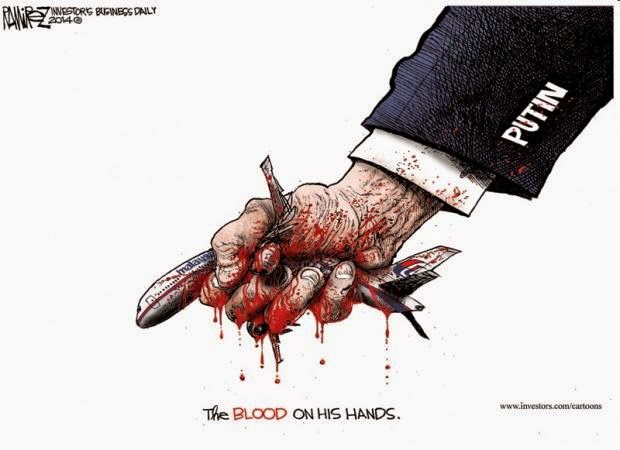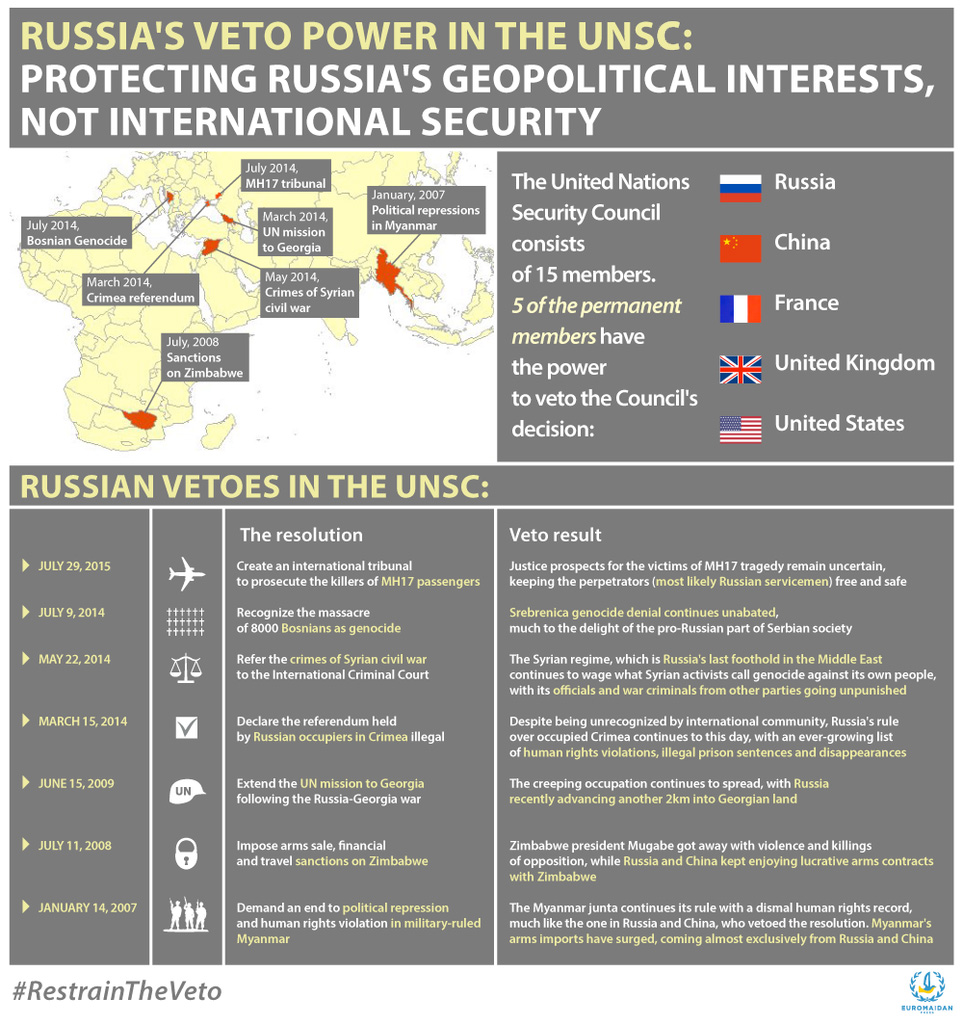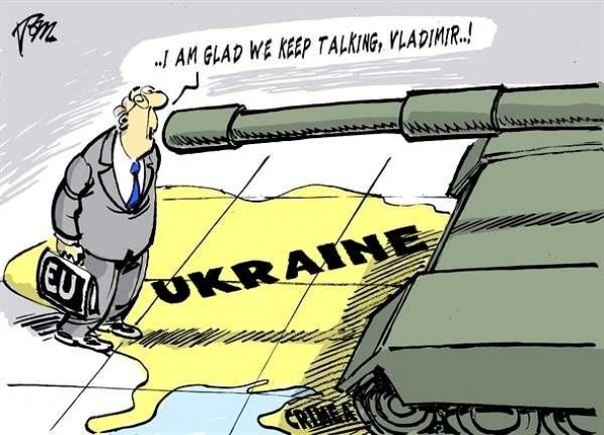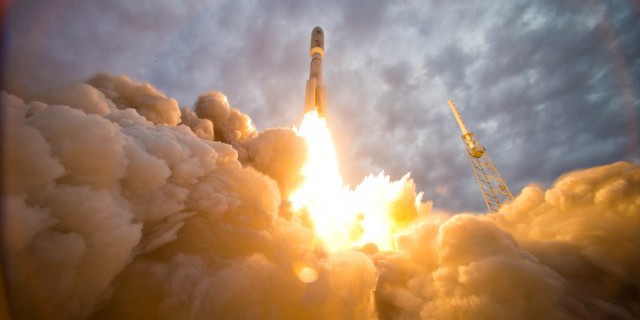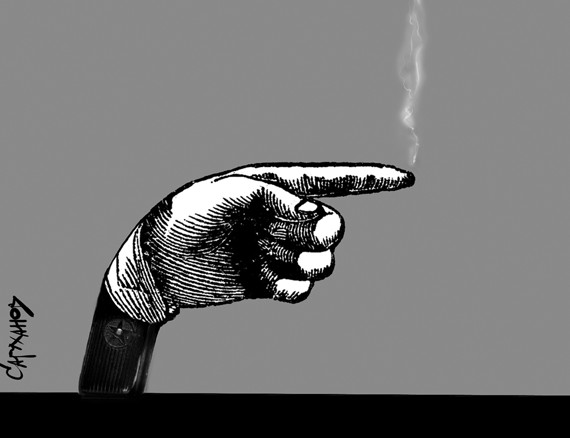Two weeks ago, 67 countries said they favored limiting the veto powers of permanent members of the UN Security Council; now, more than 100 do, perhaps the best indication of growing anger in the international community about how Vladimir Putin is using this power to block investigations into his aggression and crimes.
The right of the five permanent members of the UN Security Council has been in place since the founding of the United Nations
70 years ago, and while some countries have occasionally questioned it, there has never been the kind of groundswell of opposition to this practice as there is today.
In large measure, this reflects anger at Putin’s vetoing of efforts to investigate the shooting down of the Malaysian airline and more generally at the UN’s ineffectiveness in responding to Russian aggression in Ukraine.

Despite the numbers of countries backing change, it is far from clear that this effort will succeed, especially since other permanent members of the UN Security Council view the veto as something they need to defend either themselves or their clients. But the fact that it has gotten this far certainly highlights one of Putin’s greatest negative achievements.
Yesterday, Yury Sergeyev, Ukraine’s permanent representative to the United Nations, said that “more than 100 UN member countries support the initiative of France concerning the introduction of changes in the UN
Charter which would limit the use of the veto” in the UN Security Council.
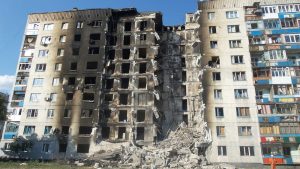
The Ukrainian diplomat said that “the first hope” for change is that the permanent members themselves will agree “not to apply a veto in cases of open conflict which threaten human life,” but that in the absence of that, other countries will continue to press for change even though this question is “complex” because it involves the UN Charter itself.
This week, Sergeyev continued, there will be a special session called by France and Mexico to consider the French initiative. “Ukraine supports” it, as do “already more than 100 countries.” The task now is to get as many others to join them as possible in order to create “a critical mass” to pressure others.

